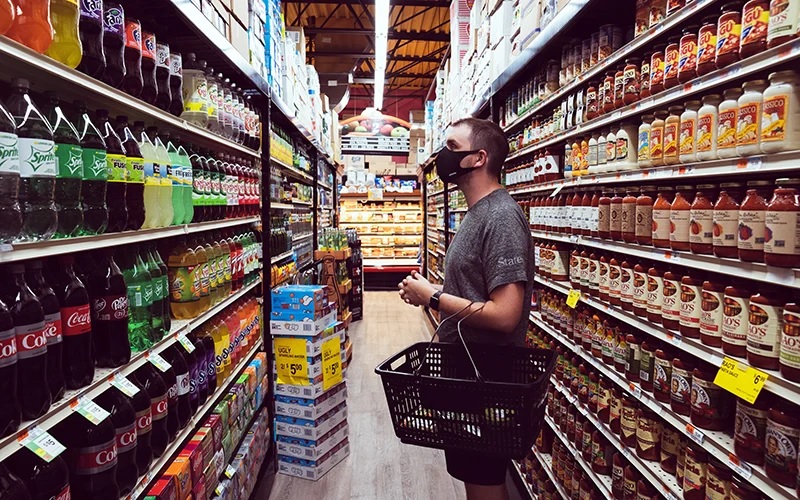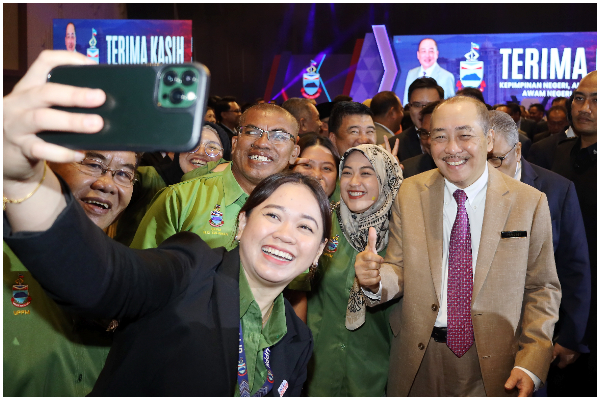Singapore tightens regulations on sweet drinks to tackle diabetes
Published on: Tuesday, December 27, 2022
By:
Nikkei, FMT
 Drinks will be ranked by sugar content, and those with higher content will have to display their classification. (Unsplash pic)
Drinks will be ranked by sugar content, and those with higher content will have to display their classification. (Unsplash pic)
SINGAPORE: Singapore will tighten regulations on displaying the sugar content of beverages at retailers in an effort to prevent rising levels of diabetes.
Starting Dec 30, beverages will be ranked by sugar content, and those higher in sugar will have to display their classification. Beverages highest in sugar will be banned from placing ads. Drink stalls and restaurants will also be subject to the regulations, and the industry is rushing to take necessary measures.
ADVERTISEMENT
Under the new Nutri-Grade system, beverages sold in Singapore will be classified into four grades from A to D, depending on their sugar content per 100 millilitres. Grade A beverages will have 1 gram of sugar or less, while the most sugary Grade D beverages will have more than 10. High levels of saturated fat will push drinks’ rankings even lower.
Grade C and D drinks will have to indicate their grade and sugar content on the front of the package. Grade D drinks will face a ban on ads.
Thai-made nata de coco fruit juice Mogu Mogu, with a Nutri-Grade of D, and lemon tea from Japan’s Pokka with a grade of C were on the shelves recently at the Yigo Mart discount store in central Singapore. The chain was one of the many retailers to comply with the new regulations ahead of the enforcement date.
“The two new measures aim to help consumers identify beverages that are higher in sugar and saturated fat and to reduce the influence of advertising on consumer preferences, thus encouraging more informed, healthier choices and spurring industry reformulation,” the Health Promotion Board explained.
ADVERTISEMENT
Diabetes prevention has become a focal point of Singaporean public health policy in recent years. The diabetes prevalence rate in Singapore’s adult population was 14.9% last year, higher than in Japan (11.8%) and China (13%), according to data from the International Diabetes Federation.
“One in three individuals in Singapore is at risk of developing diabetes in their lifetime,” Singapore’s Health Minister Ong Ye Kung said in a speech in November 2021.
ADVERTISEMENT
Diseases caused by poor lifestyles are a serious problem in rapidly greying Singapore. If no measures are taken, medical spending could increase and weigh on the country’s finances. The ministry of health is running a campaign called “the War on Diabetes” to raise awareness of the disease and improve people’s daily habits.
Beverages have been targeted because more than half of Singaporeans’ average 60-gram daily intake of sugar comes from beverages.
Beverage makers, importers and wholesalers were already busy coping with the new regulations even before they were announced late last year. Some beverages now carry Nutri-Grade labels, while some imported products with even Grade C sugar content had no labels.
The industry is feeling the pain. “We have to put specially prepared labels on beverages imported from Japan, and that is a heavy burden on us,” said Nobuki Miura, managing director of Japanese food importer Imei. Drinks cannot be ranked and sold unless their makers disclose information on their ingredients. “I hear that many products have been removed from store shelves,” Miura said.
Opening boxes and putting labels on each bottle or can bring companies higher labour costs. One foreign beverage maker had no choice but to print special labels on packages in its producing country just for hot-selling products in Singapore. But as the Singapore market is small, some companies reckon that these responses make no business sense.
The newly introduced regulations will not apply to canned and bottled beverages alone. In August, the health minister said the government also plans to apply Nutri-Grade labels to freshly prepared drinks in food and beverage outlets.
The government plans to announce details of the new measures by the middle of next year, in the hope of enacting them by the end of the year. Bubble tea, which is popular among young people, and traditional sweetened coffee with condensed milk will also face pressure to reduce sugar content.
Southeast Asian consumers have a soft spot for sweetened drinks, and Malaysia and other neighbouring countries have also grappled with diabetes and obesity. Tackling these issues seems timely since consumers’ tastes have changed gradually in recent years as they become more health-conscious.
Yeo Hiap Seng, a Singapore-based company that makes chrysanthemum tea and other Asian-style drinks, has since 2006 reviewed the sugar content of its products and strengthened its lineups of low-sugar and sugar-free products.
“Close to 100% of our beverages are in A and B gradings,” said a Yeo Hiap Seng official.
Stay up-to-date by following Daily Express’s Telegram channel.
Daily Express Malaysia










